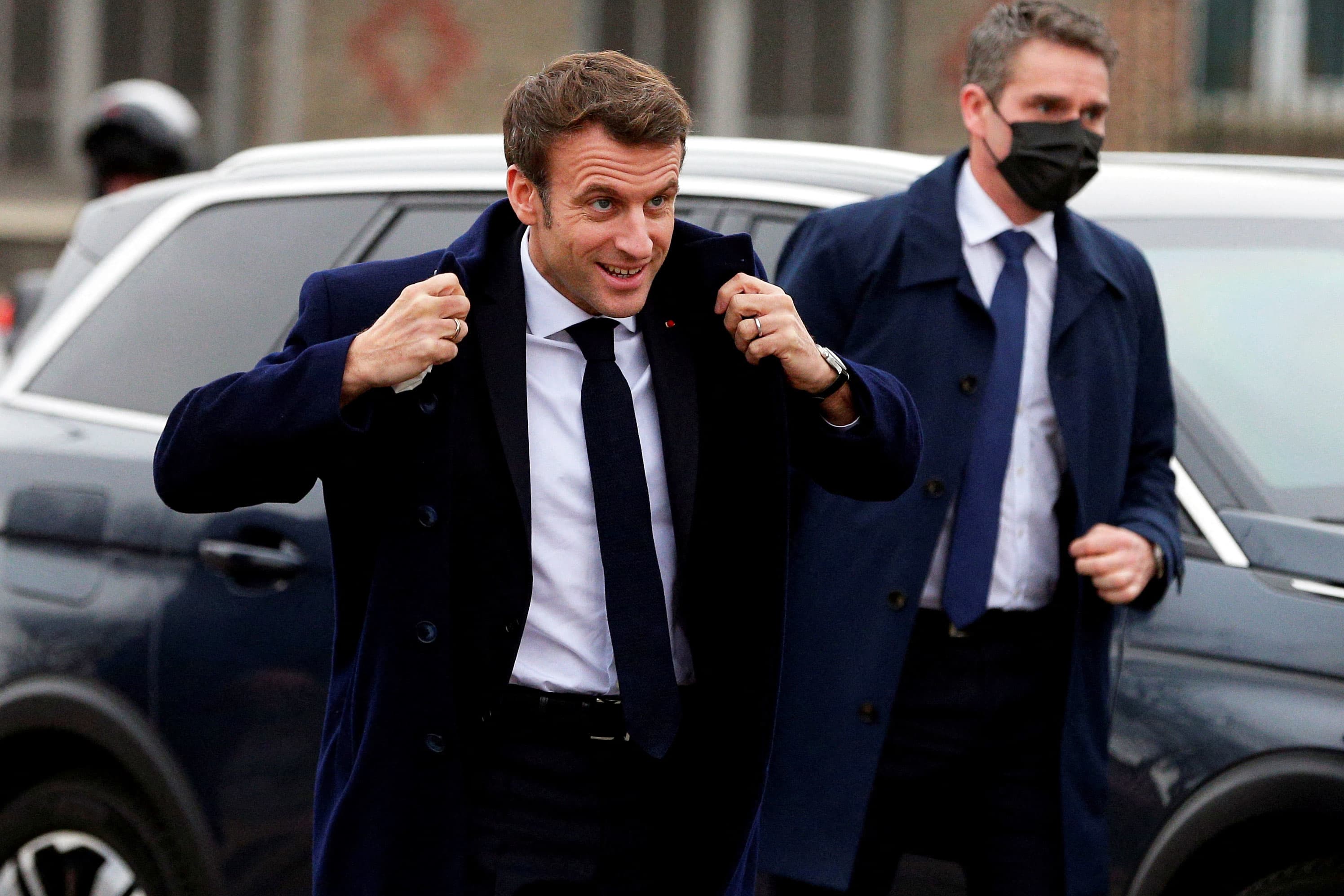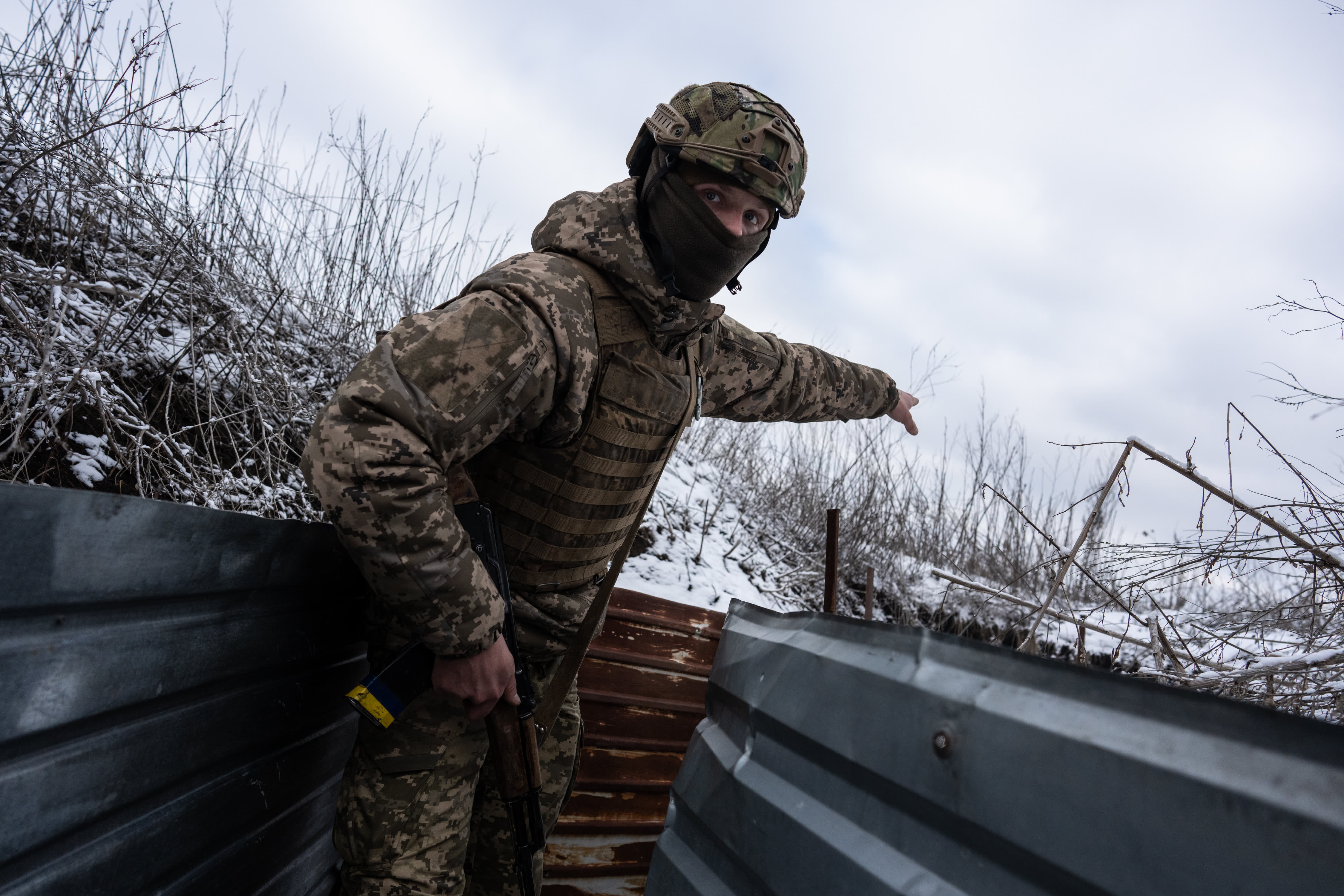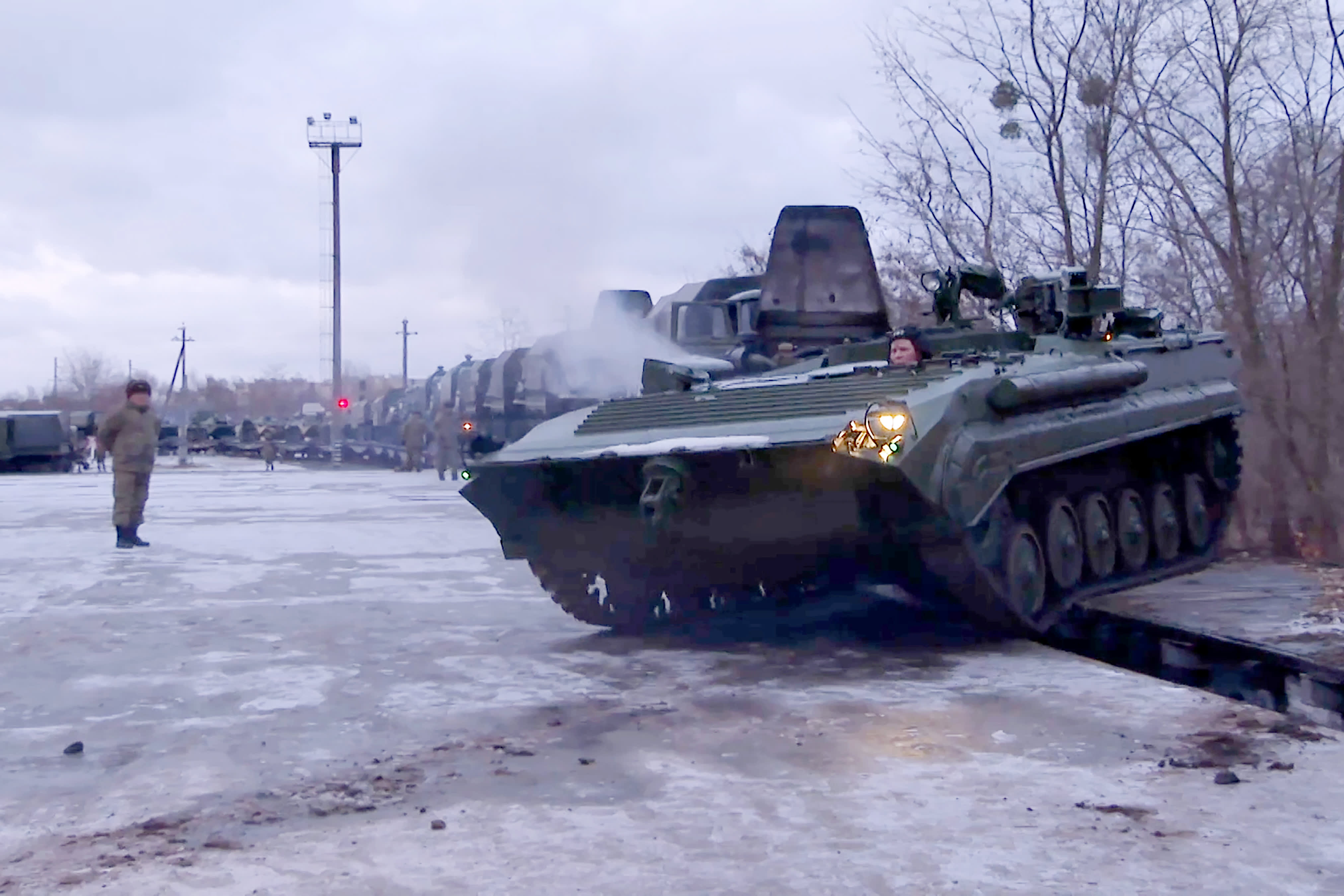A new day of high-level, high-stakes diplomacy played out Tuesday with European leaders striving to reinvigorate stalled peace talks between Russia and Ukraine, as Moscow and NATO allies put on a show of resolve by continuing to mobilize their forces.
Here’s a look at what is happening where and why:
AFTER MOSCOW, ALL EYES ON UKRAINE
French President Emmanuel Macron said his Russian counterpart Vladimir Putin told him that he doesn't plan to ramp up military tensions any further in Ukraine, nor will Moscow be keeping its troops in neighboring Belarus.
Get top local stories in Southern California delivered to you every morning. >Sign up for NBC LA's News Headlines newsletter.
Speaking in Kyiv, where he held talks with Ukrainian President Volodymyr Zelenskyy, Macron said Putin told him on Monday that “he won’t be initiating an escalation." More than 100,000 Russian troops are deployed near Ukraine. Russian troop numbers in Belarus are expected to climb to 30,000. They're in the country for joint war games, but the exercises are fueling tensions.
Macron praised the “calm” and “self-restraint” of the Ukrainian authorities and people. Ukraine's economy and currency have been hit by the tensions. Macron said Putin and Zelenskyy confirmed that they want to implement the Minsk peace agreement. Macron said the 2015 peace deal is “the only path on which peace can be built."
Macron's trying to revive the “Normandy Format” peace talks aimed at ending almost eight years of fighting in eastern Ukraine in which more than 14,000 people have died. He said envoys from the four countries involved — France, Germany, Russia and Ukraine — will meet Thursday in Berlin.
Zelenskyy said “the peace process” was at the heart of his talks with Macron.
“We have a common view with President Macron on threats and challenges to the security of Ukraine,” he said after the meeting.
More on Ukraine Crisis
The French leader then headed to Berlin to huddle with German Chancellor Olaf Scholz and Polish President Andrzej Duda, who is playing an increasingly prominent diplomatic role, and whose country borders western Ukraine and Belarus. Macron will also hold more phone talks with Putin.
THE DRUMS OF WAR GAMES
As the high-stakes diplomacy continues, Russia has kept up its military pressure, while NATO allies have been deploying troops and working on new plans for a longer-term presence in Eastern Europe; to deter Russia, not defend Ukraine.
Russia’s Defense Ministry said Tuesday that six large landing ships were moving from the Mediterranean to the Black Sea, where they will take part in military exercises. U.S. officials consider the landing craft to be a significant addition to the Russian naval force in the region.
The buildup of Russian troops in Belarus near Ukraine’s northern border continues too, for snap joint war games.
NATO’s chief had warned of high-end fighter jets and S400 missile systems were deployed to Belarus and now says that “enabling capacities” like command and control and logistics units as well as field medical centers are being set up.
NATO allies are now discussing plans to send battalions of troops to Slovakia, Hungary, Bulgaria and Romania. No decision on the move has been made yet, but it could mirror NATO’s presence in Estonia, Latvia, Lithuania and Poland, where 5,000 troops are deployed in a mission that’s run since 2016.
Denmark, for its part, said that it's stepping up military preparedness as security deteriorates because of the “unacceptable Russian military pressure on Ukraine,” according to a defense ministry statement.
Other Ukraine News
In London, Prime Minister Boris Johnson said the U.K. is ready to bolster NATO forces in Latvia and Estonia. Johnson said he was considering dispatching RAF Typhoon fighters and Royal Navy warships to southeastern Europe.
Britain is sending 350 troops to Poland to help bolster NATO forces in eastern Europe. NATO as an organization is not providing military support to Ukraine and will not come to the rescue should Russia invade, but some individual countries are helping to support the Ukrainian armed forces. The U.K. has already sent anti-tank weapons.
Romania’s defense minister said Tuesday that more than 100 U.S. military personnel have already arrived in Romania ahead of a deployment of around 1,000 NATO troops expected in coming days.
MEANWHILE, IN EASTERN UKRAINE
The foreign minister of Germany, which has come under widespread pressure over its tepid role in the conflict, visited the “line of contact” in Ukraine’s Donbas region, where Ukrainian forces and Russia-backed separatists have faced off since 2014.
Foreign Minister Annalena Baerbock said she went to the region “to get an impression of what it means that we still have war in the middle of Europe,” and to see first hand what damage has been done.
Germany has given Ukraine about 1.8 billion euros in aid since 2014. Some has gone to help people forced from their homes by the fighting.
Baerbock said it would be impossible “to solve this aggression from the Russian side militarily, so I am doing everything I can to make sure that we move forward step by step at the negotiating table.”
But she warned: “At the same time, all of us in the international community, with our joint action and the list of sanctions, are doing everything we can to make it clear that any further military aggression from the Russian side would have massive consequences.”
___
Sylvie Corbet in Kyiv, Frank Jordans in Berlin, Jari Tanner in Helsinki, Jill Lawless in London, and Stephen McGrath in Bucharest, Romania, contributed to this report.
___
Follow all AP stories on the crisis over Ukraine at https://apnews.com/hub/russia-ukraine




